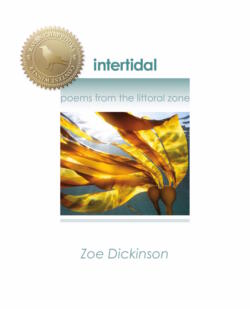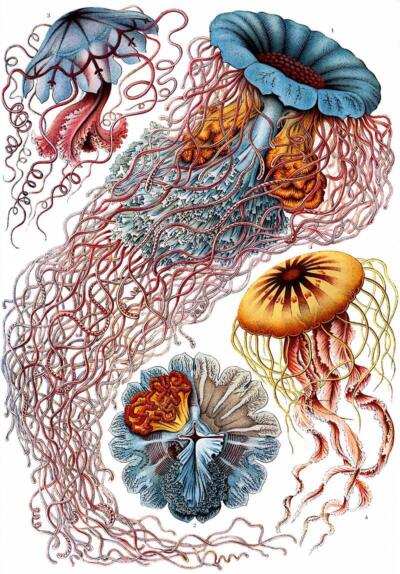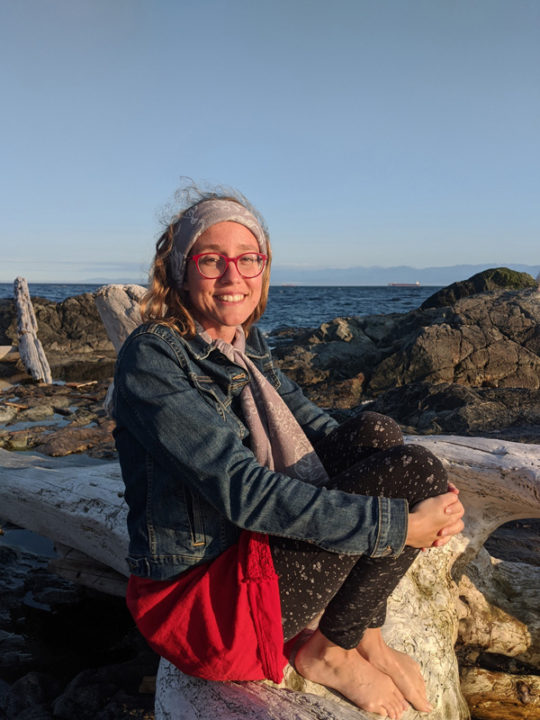Zoe Dickinson, a poet and bookseller from Victoria, B.C., is the 2022 winner of the Raven Chapbooks Contest with intertidal: poems from the littoral zone. It sounds rather erotic doesn’t it, and definitely literary. (Zoe is also Artistic Director of Planet Earth Poetry in Victoria.)
As Zoe, whose poetry is rooted in the Pacific coastline, explains: “The littoral zone in a coastal ecosystem ranges from the high-tide mark to the subtidal area, and is defined by the presence of sunlight at the sediment level. This zone of alternating intervals of submergence and exposure is home to abundant life due to plentiful oxygen and nutrients.”
Zoe observes the abundant life of intertidal creatures “on the rocky shores of the Juan de Fuca strait where she delights in the “incredible diversity of life [thriving] in every possible nook and cranny. It is this dynamic world-between-the-tides that spawned these poems.”
 Most chapbooks are about twenty pages in length and this one is forty-five beautiful pages. The stunning cover photograph of baby Bull Kelp “growing towards the sun” is by Jackie Hildering, also known as The Marine Detective, an underwater photographer and biology teacher living on northeast Vancouver Island.
Most chapbooks are about twenty pages in length and this one is forty-five beautiful pages. The stunning cover photograph of baby Bull Kelp “growing towards the sun” is by Jackie Hildering, also known as The Marine Detective, an underwater photographer and biology teacher living on northeast Vancouver Island.
Pat Walker designed the book which is a gorgeous tribute to the poems and their subjects. The paper has a smooth finish which makes the book wonderfully tactile. The papers used are described and the main pages are Pacesetter 100# Silk text. (I know at least one person who is interested in paper!)
Illustrations throughout are in black and white as well in colour which add a whole other level of discovery. They’re by Ernst Haeckel (1834 – 1919) who was a German zoologist, naturalist, physician, marine biologist and artist. “He discovered, described, and named thousands of new species, mapping a genealogical tree relating all life forms and connecting many terms in biology.”
 The poems have a beautiful intricacy as well as intimacy in their crafting with a simplicity that is profound in their descriptions of the complex ecology of the Pacific West Coast.
The poems have a beautiful intricacy as well as intimacy in their crafting with a simplicity that is profound in their descriptions of the complex ecology of the Pacific West Coast.
Zoe begins with “I’d like to start by acknowledging” in which she lists a series of acknowledgements of the place “this poem is being written” which is the unceded territories of the Lekwungen speaking peoples. She acknowledges that “my life takes place where someone else’s life should be happening.” She realizes the power of language and of poetry:
. . . if poetry is a way of learning to know the world
then I want my poems
to show this truth
not hide it
and if I’m honest
those are the only two choices.
This is a poet we can trust with her astute observations, knowledge, and a reciprocal relationship with what surrounds her.
The illustration is “Discomedusae” by Ernst Haeckel (1834 – 1919)
The poet mourns the collapse of starfish and receives advice from anemone. And it’s good advice: “share your flesh with someone / who can appreciate it –“
. . .
spit out what does not serve you–
no point in hanging on
to someone else’s shelf.
(“anemone advice”)
In the poem entitled “the meeting,” it’s exciting when the “orcas come” as the speaker thinks “my feet have touched – at low tide— / the place they are swimming . . . “ She acknowledges their connection.
I was fascinated by the name “nudibranch” when Sarah and I moved to Vancouver Island. Zoe has a “nudibranch” poem in which the speaker declares:
well, that’s one way to deal with fear:
instead of getting harder,
cast off the shell
become all soft underbelly
expose every bit of glowing skin
and dare the world to take a bite
what is armour
but participation
with the predator?
The speaker ends with “teach me to be soft / and inexorable.”
 Zoe gives us hope for the human race not only due to her care about and for the shoreline of the Pacific Ocean on Canada’s West Coast. She offers a poem with that title: “hope for the human race” in which the irksome mosquito gets recognized. The narrator lets us know:
Zoe gives us hope for the human race not only due to her care about and for the shoreline of the Pacific Ocean on Canada’s West Coast. She offers a poem with that title: “hope for the human race” in which the irksome mosquito gets recognized. The narrator lets us know:
how the mosquito’s gaze carries messages
between flowers
after dark
how human blood
becomes a link in this ancient chain
and we
accidentally
nourish a constellation of blooms
is proof that even the worst pest
fulfills a purpose in the ecosystem
despite ourselves
Indeed hopeful, wouldn’t you say?
In the poem entitled “bryozoa” which are commonly known as moss animals living in sedentary colonies (thank you Wikipedia) the narrator reflects on her human self:
. . .
some animals discard shells —
bryozoans
discard bodies
keep the shell,
regrow from the outside in
as though
the space we inhabit
holds our true identity
as though all I’d need
to remake myself
is the indentation
my body leaves in the couch;
that crook
in your neck
where my cheek fits perfectly.
Simply exquisite. You’ll want to read the complete poems yourself and celebrate the poetry of Zoe Dickinson and her love of the “incredible diversity of life” on the rocky shores of Juan de Fuca strait.
Raven Chapbooks is an independent press on Salt Spring Island, British Columbia and an imprint of Rainbow Publishers. Diana Hayes is the publisher and she takes great care in creating beautifully designed chapbooks in small editions. That’s part of her mandate as well as “to support poets by providing a launching pad for wider audiences.”
You can order your own copy of intertidal: poems from the littoral zone, here: https://www.ravenchapbooks.ca/

What a beautiful description of what, by all accounts, is a remarkable book of poetry. Can’t wait to order a copy. You make the book come alive for me in your writing about it and sharing the bits from it. Thank you so much for sharing this with us. Lovely writing on both your parts.
Thank you Beth! It is a remarkable book thanks to Zoe’s poetry, the illustrations and the great care Diana Hayes takes with the chapbooks at Raven Chapbooks. I appreciate your kind comments.